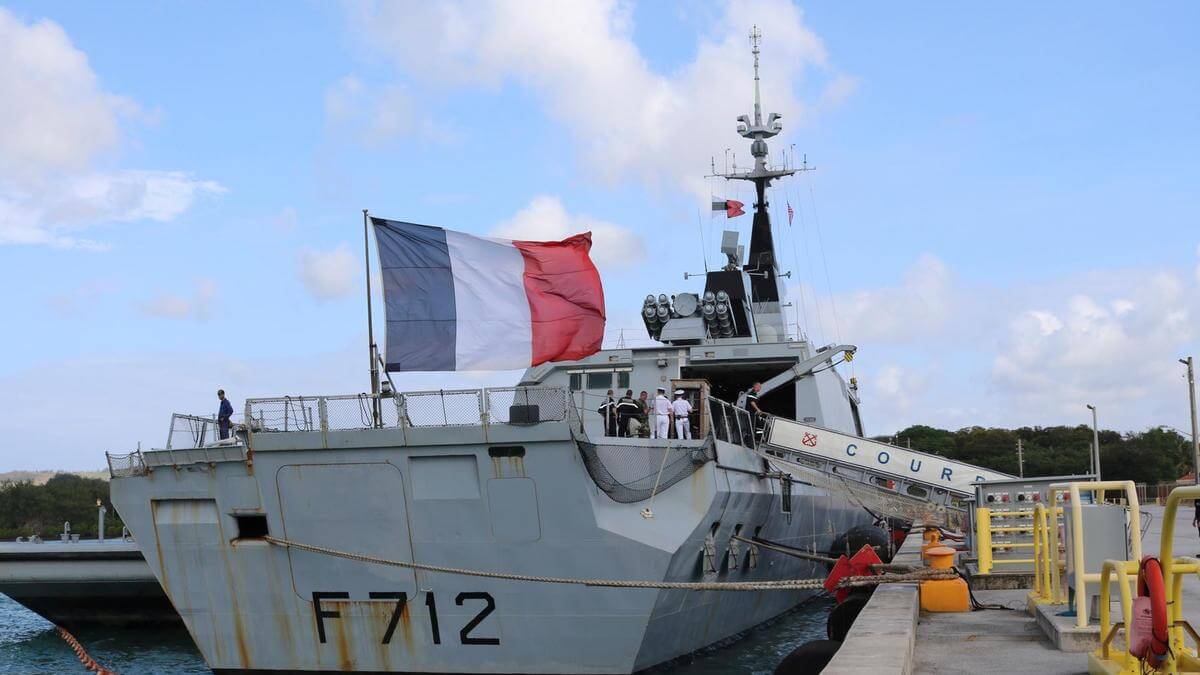On Wednesday, the French Armed Forces Ministry informed the North Atlantic Treaty Organization (NATO) of its decision to withdraw its presence from the Sea Guardian Operation in the Mediterranean. In a letter to the NATO, France demanded the following: “a reaffirmation by alliance members of their commitment to respecting the embargo; ensuring NATO call signals were not used by countries during national missions; better coordination between NATO and EU missions enforcing the embargo; and putting in place mechanisms to avoid similar incidents in the future.” It declared that its involvement in the region would remain suspended until the abovementioned demands are fulfilled. An official from the ministry said, “It doesn’t make sense to keep our assets … with allies who do not respect the embargo.”
Also Read: Macron Accuses Turkey of Bearing Criminal Responsibility for its Actions in Libya
This decision was instigated by an incident on June 10, when Turkish frigates, which were accompanied by a cargo ship, refused to be inspected by French frigates, who were working on the NATO Sea Guardian Operation. France claims that the cargo was involved in trafficking arms into Libya, while Turkey maintains that it was carrying medical supplies for humanitarian aid. This almost resulted in a violent clash between the two vessels. France claims that its warship, which plays a crucial role in “maritime counter-terrorism”, was targeted three times by Turkey with their “weapons systems”. In fact, a week after the incident, France had filed a complaint with NATO over Turkey’s actions. However, merely eight out of thirty allies supported France in its criticism of Turkey. Surprisingly, France’s stand was rejected by the US and the UK too.
Since the June 10 incident, the two countries have had an ongoing war of words. On Monday, speaking at a press conference, French President Emmanuel Macron, who was accompanied by German Chancellor Angela Merkel, said that Tukey bore “criminal responsibility” for its role in the conflict in Libya. He further said, “I consider that today Turkey doesn’t respect any of the commitments made at the Berlin conference, increased its military presence in Libya since then and massively reimported jihadist fighters from Syria.”
Moreover, last week, Macron, who was talking alongside Kais Saied, Tunisia’s President, warned Turkey that its role in Turkey would not be “tolerated” by France. At the time, he said, “I have already had the opportunity to say very clearly to President Erdogan, I consider that Turkey is playing a dangerous game in Libya today and going against all of its commitments made at the Berlin conference.”
Libyan Conflict Coverage:
- Russian Mercenaries Evacuate Libya, US Accuses Moscow of Sending Warplanes to Haftar
- Libya Calls for US and EU Blockade on Russian Mercenaries as They Enter Oil Fields
- Turkey Threatens Retaliation against Haftar’s Forces in Libya as Tensions Escalate
- Libyan Rivals Set to Sign a Ceasefire Agreement in Moscow
- After Year-Long Offensive, UN-Recognized Government Regains Control of Libyan Capital
- Turkey Announces the Deployment of Troops to Libya
On the other hand, Turkey blamed France for attempting to “increase Russia’s presence in Libya” and demanded an apology from France for its unfounded allegations against the Turkish frigate. Turkey’s Foreign Minister, Mevlut Cavusoglu, said, “France has not told the truth to the EU or to NATO” and that “instead of engaging in anti-Turkish activities and such leanings, France needs to make a sincere confession.” Further, Turkey maintains that it was France that was aggressive first. Turkey’s Ambassador in France, Ismail Hakki Mussa, while addressing a meeting with French senators, said, “According to the information that I have [the NATO report] is not conclusive.” He added that the withdrawal from the Sea Guardian Operation is because NATO’s investigation did not back France’s narrative.
Image Source: The National

